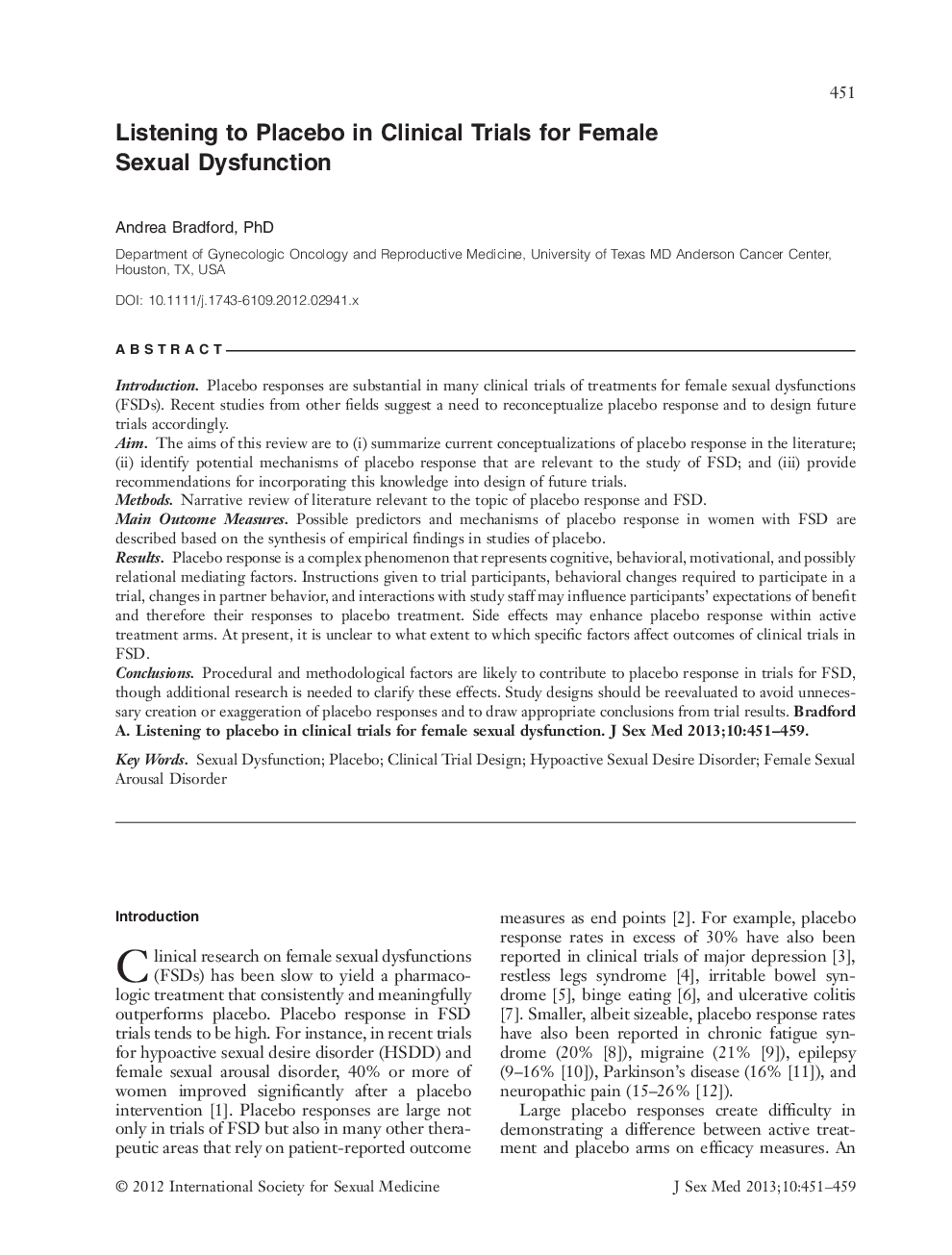| Article ID | Journal | Published Year | Pages | File Type |
|---|---|---|---|---|
| 4270393 | The Journal of Sexual Medicine | 2013 | 9 Pages |
ABSTRACTIntroductionPlacebo responses are substantial in many clinical trials of treatments for female sexual dysfunctions (FSDs). Recent studies from other fields suggest a need to reconceptualize placebo response and to design future trials accordingly.AimThe aims of this review are to (i) summarize current conceptualizations of placebo response in the literature; (ii) identify potential mechanisms of placebo response that are relevant to the study of FSD; and (iii) provide recommendations for incorporating this knowledge into design of future trials.MethodsNarrative review of literature relevant to the topic of placebo response and FSD.Main Outcome MeasuresPossible predictors and mechanisms of placebo response in women with FSD are described based on the synthesis of empirical findings in studies of placebo.ResultsPlacebo response is a complex phenomenon that represents cognitive, behavioral, motivational, and possibly relational mediating factors. Instructions given to trial participants, behavioral changes required to participate in a trial, changes in partner behavior, and interactions with study staff may influence participants' expectations of benefit and therefore their responses to placebo treatment. Side effects may enhance placebo response within active treatment arms. At present, it is unclear to what extent to which specific factors affect outcomes of clinical trials in FSD.ConclusionsProcedural and methodological factors are likely to contribute to placebo response in trials for FSD, though additional research is needed to clarify these effects. Study designs should be reevaluated to avoid unnecessary creation or exaggeration of placebo responses and to draw appropriate conclusions from trial results. Bradford A. Listening to placebo in clinical trials for female sexual dysfunction. J Sex Med **;**:**–**.
